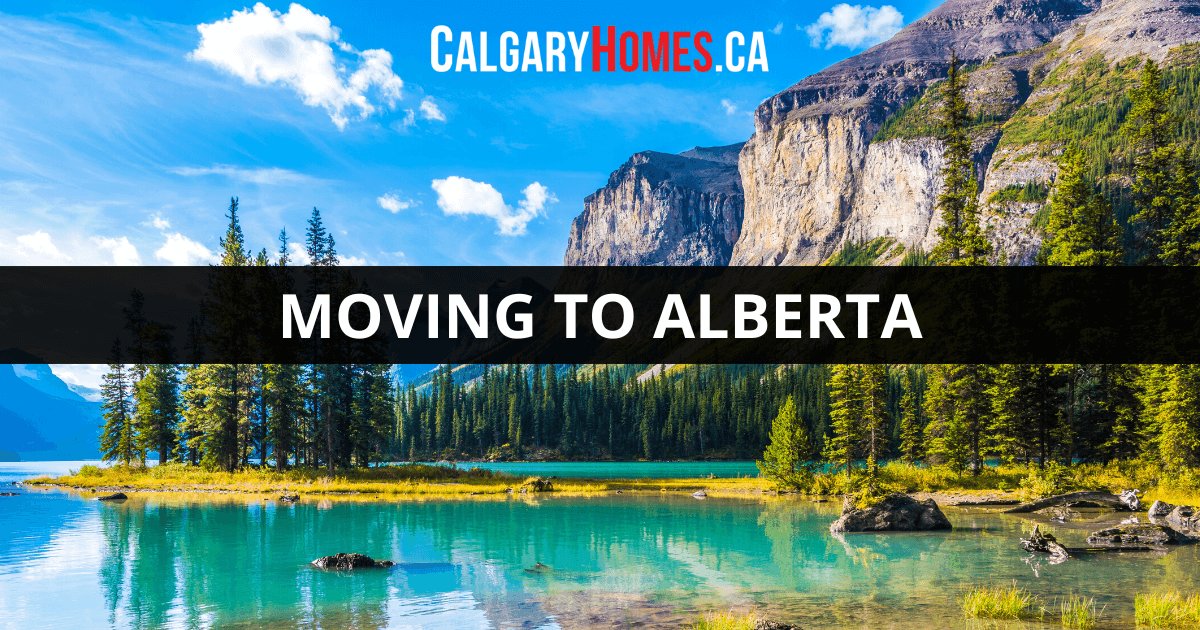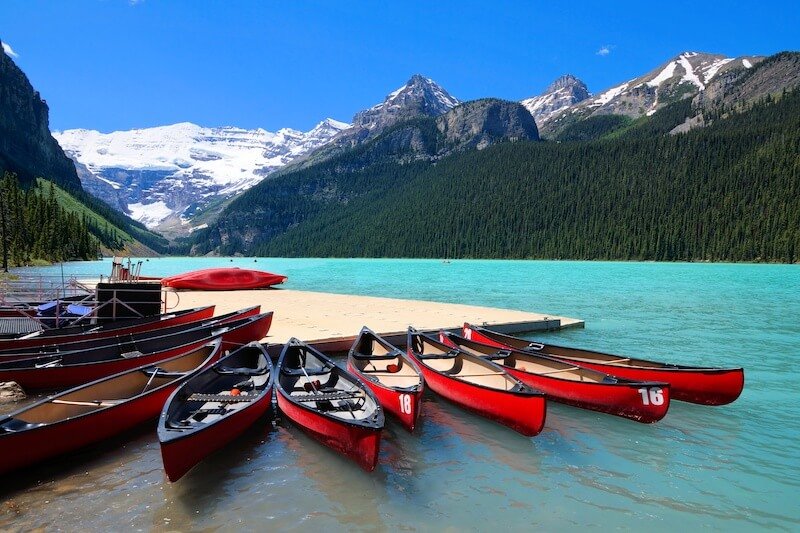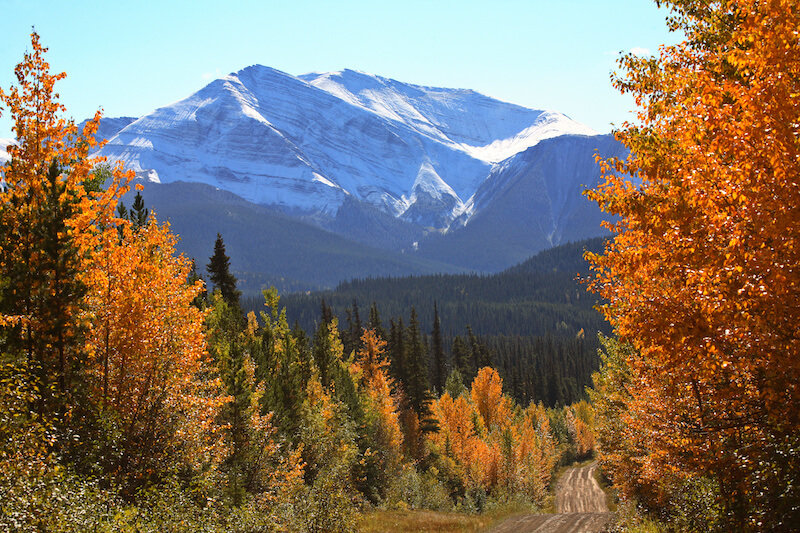Is Alberta a Good Place to Live? 10 Reasons to Move to Alberta
Posted by Justin Havre on Tuesday, May 23rd, 2023 at 12:20pm.

Is Alberta a Good Place to Live?
Are you considering making Alberta your new home? If so, there are many things to consider before making the big move. From housing and cost of living to popular attractions and climate in the area, it is essential to get an idea of what life will be like if you choose Alberta as your new home. Schools, driving laws and other factors can help you decide whether moving to Calgary, Edmonton, or some of the smaller towns in the province is right for you.
Should I Move to Alberta? 10 Reasons to Say "Yes!"
- Strong Economy: Alberta has a robust economy driven by industries such as oil and gas, agriculture, forestry, and technology.
- Affordable Housing: Compared to some other major Canadian cities, Alberta generally offers more affordable housing options, making it an attractive destination for those looking to buy a new home.
- Higher Average Salaries: Reported income and wages in Alberta are among the highest in the country.
- Big Cities: Calgary and Edmonton are two of the biggest cities in Canada, providing the province with robust amenities and exciting opportunities.
- Small Towns: Big city living is for everyone. The small towns in Alberta are perfect for people looking for a slower pace of life.
- Natural Beauty: Alberta is renowned for its stunning natural landscapes. From the majestic Canadian Rockies to the Badlands, there are endless opportunities for outdoor adventures.
- No PST: Alberta has no provincial sales tax (PST) and generally lower overall taxes compared to other provinces.
- Friendly Atmosphere: A welcoming atmosphere makes it easy for newcomers to settle down in no time.
- You're Always Connected: Alberta's convenient central location makes it easy to travel anywhere in the country or the world.
- Alberta Is Calling: The Alberta is Calling campaign reflects the province's open attitude towards new residents.
Housing in Alberta
Alberta offers a variety of housing options, from single-family homes to condos and townhomes. The cost of housing in Alberta is relatively low compared to other provinces, making it an attractive option for those looking to buy or rent a home.
Many different types of homes are available in Alberta, ranging from detached single-family dwellings to high-rise condos in Calgary or Edmonton's bustling core areas. Smaller towns may offer more rural properties, such as acreages with outbuildings. At the same time, larger cities have plenty more choices, including multi-family properties that make great investments.
Cost of Living in Alberta
Alberta is known for its stunning natural beauty and bustling cities. With over 4 million people, it's no surprise that many are considering moving to this beautiful province. Before you do, it's essential to understand the cost of living so you can make an informed decision about your relocation.
Housing
The average home price in Alberta is around $400,000; compared to other provinces, such as British Columbia or Ontario, Alberta's housing market remains relatively affordable. Housing costs depend largely on the city and neighbourhood you choose. For example, homebuyers can find condos for sale in Airdrie listed for considerably lower than in Calgary; however, Calgary's most affordable neighbourhoods could potentially have cheaper condos due to the quantity and variety of options.
Renting is also reasonable, with one-bedroom apartments ranging from $900–$1500 per month, depending on location and size.
Food
Grocery costs in Alberta vary depending on your city; however, they remain fairly reasonable compared to other parts of Canada and North America.
Prices for essential food items such as bread, milk and eggs are comparable to those found elsewhere across the country. In contrast, more specialty items may be slightly higher due to their limited availability within the province.
Utilities
Utility bills, including electricity, water, sewage and garbage collection, will depend upon usage. Generally speaking, though, they tend to be lower than most other provinces throughout Canada, with monthly bills averaging around $175 per month.
Childcare Expenses
Childcare expenses in Alberta can vary greatly depending on where you live. The province-wide monthly childcare costs range from $700–$1,000 for full-time care.
Overall Cost of Living In Alberta
Considering all factors mentioned above—housing costs, food prices, utility bills and childcare expenses—it's clear that Albertans enjoy a relatively low living cost compared to much of North America!
More information about cost of living in Alberta:
Popular Attractions and Things to Do

Alberta is full of exciting attractions and activities for people of all ages. From outdoor adventures like hiking and skiing to shopping and dining options, there is something for everyone in this province.
Outdoor Activities
Alberta offers a variety of activities that are perfect for adventurers looking to explore the great outdoors. Whether you're interested in hiking through the Rocky Mountains or canoeing on one of Alberta's many lakes, there are plenty of opportunities to get outside and enjoy nature.
There are numerous Calgary neighbourhoods with outdoor skating rinks, and Banff is a mountainous wonderland great for exploring. Ski resorts like Lake Louise, Sunshine Village, Norquay, Nakiska and Marmot Basin offer some of the best downhill skiing in Canada. For those who prefer cross-country skiing or snowshoeing, Kananaskis Country has over 200 kilometres of trails that wind through pristine wilderness areas with stunning views.
Shopping & Dining Options
There are also plenty of shopping and dining options available throughout Alberta. Downtown Calgary has numerous shops offering everything from clothing to art galleries and unique restaurants serving global cuisine. Edmonton boasts an array of farmers' markets where visitors can purchase fresh produce grown locally while enjoying live music performances by local artists at open-air venues throughout the city during the summer.
Climate in Alberta

Alberta has a variety of climates. The climate varies depending on location but generally has warm summers and cold winters. Average temperatures during the summer months range from 15°C–30°C. During winter, temperatures can drop as low as -20°C.
Average Temperatures by Season
Spring typically brings milder weather with average temperatures ranging from 0°C–15°C, while summer is usually hot and dry, with average temperatures reaching up to 30°C. Fall brings cooler weather, with average temperatures ranging from 5°C–20°C. Winter is usually cold and snowy, with average temperatures dropping to -10°C or colder.
Alberta experiences four distinct seasons throughout the year. In spring, there are often thunderstorms that bring rain or snow. Summer tends to be sunny and dry, while fall brings cool days followed by chilly nights. Winter can be freezing and snowy, especially in northern parts of the province; annual precipitation levels vary significantly across Alberta, but most areas receive an average of 25 cm per year.
Driving in Alberta
Driving in Alberta is a great way to get around the province. Before hitting the road—whether you're driving in Calgary to explore the city or driving cross-country—it's essential to familiarize yourself with the rules of the road and traffic laws specific to this area. Drivers should also be aware that cell phone use while driving is prohibited unless they use hands-free technology.
When registering your vehicle in Alberta, you will need proof of ownership, such as a bill of sale or lease agreement, and valid identification, like a driver's license or passport. You will also need to provide proof of insurance which covers liability for bodily injury and property damage caused by accidents. It is important to note that all vehicles registered in Alberta must have minimum third-party liability coverage regardless of whether they are driven within provincial borders.
Public Transportation in Alberta
The largest Albertan cities go to great lengths to ensure their residents' access to transportation options. Calgary's public transportation system—which includes buses and trains—is well-equipped and varied enough to touch nearly every area of the city in addition to the most populated suburbs. Edmonton and its surrounding suburbs also have access to great public transportation, and that access is a motivation for many homebuyers to move to the province.
Schools in Alberta

Public schools in Alberta are funded by the government and offer educational options for students from Kindergarten through Grade 12. Alberta's Ministry of Education provides detailed information about each school district, including ratings and performance results.
Public schools provide various educational opportunities for students, such as language classes, music programs, art classes, physical education courses and more. They can also access specialized services like special needs support and counselling services. Parents can learn more about their local public school system by visiting their local board office or searching online for information about individual schools.
For those who wish to pursue a more specialized education path, several private schools are also available in Alberta. Private schools typically offer smaller classes and extracurricular activities such as sports teams or clubs that public institutions may not provide. Tuition costs vary depending on the type of institution chosen but generally range from $10,000–$20,000 per year for elementary and secondary schooling levels.
The province also offers numerous options for higher education. Some of the universities in Alberta include the University of Alberta, University of Calgary, and Mount Royal University.
Alberta provides a range of educational options to meet the needs of students and families, whether a student is attending schools in Airdrie or Edmonton.
Alberta Awaits
Whether you're looking for an exciting new adventure or want to start fresh in a new place, moving to Alberta will surely provide the opportunity for the growth and exploration you seek. With all these factors in mind, it's no wonder why so many people are choosing Alberta as their next home. So if you're considering making a move yourself, take some time to research what living in Alberta has to offer—it could be the perfect fit.
If you're looking for a home in Alberta, contact Justin Havre with eXp Realty with Calgary Homes at (403) 217-0003 to reach a local Alberta real estate agent and discover your dream home.

